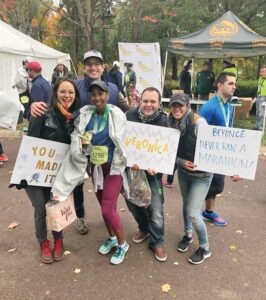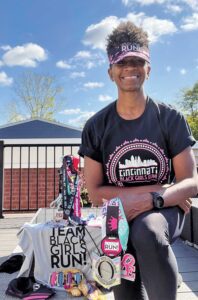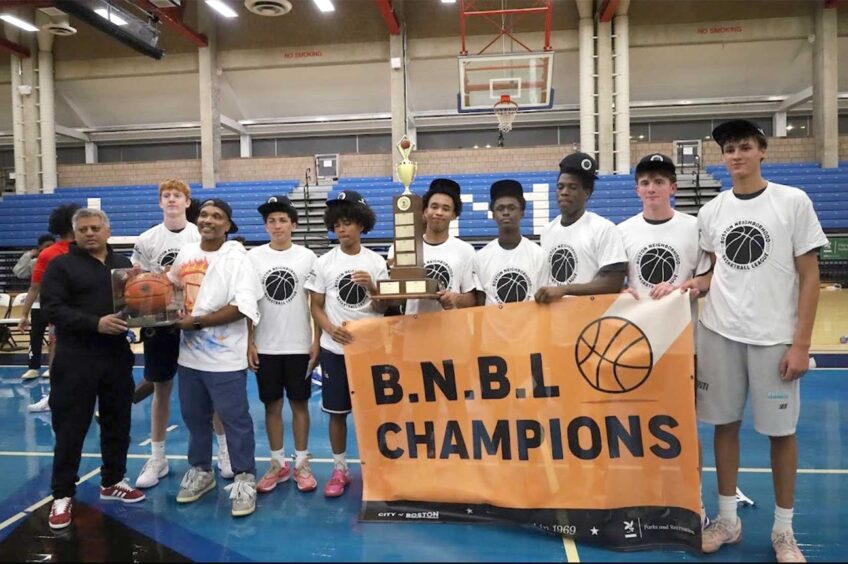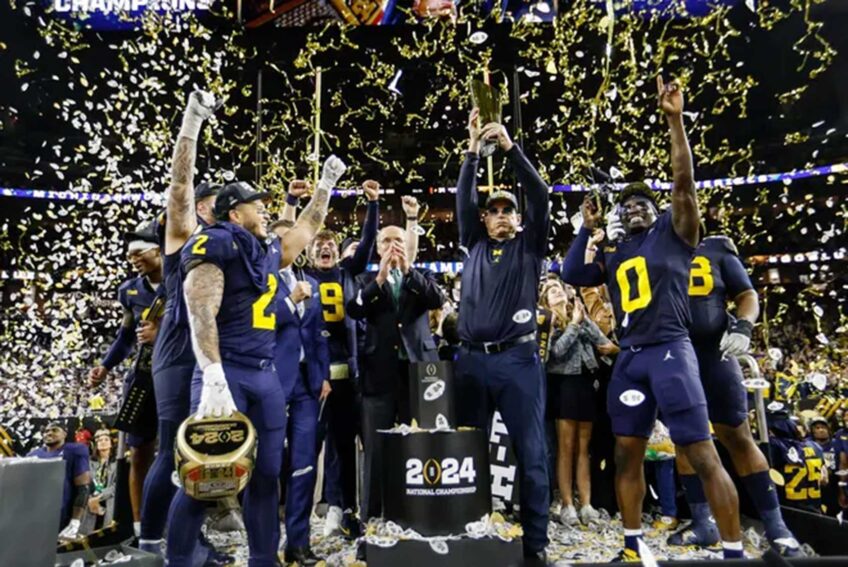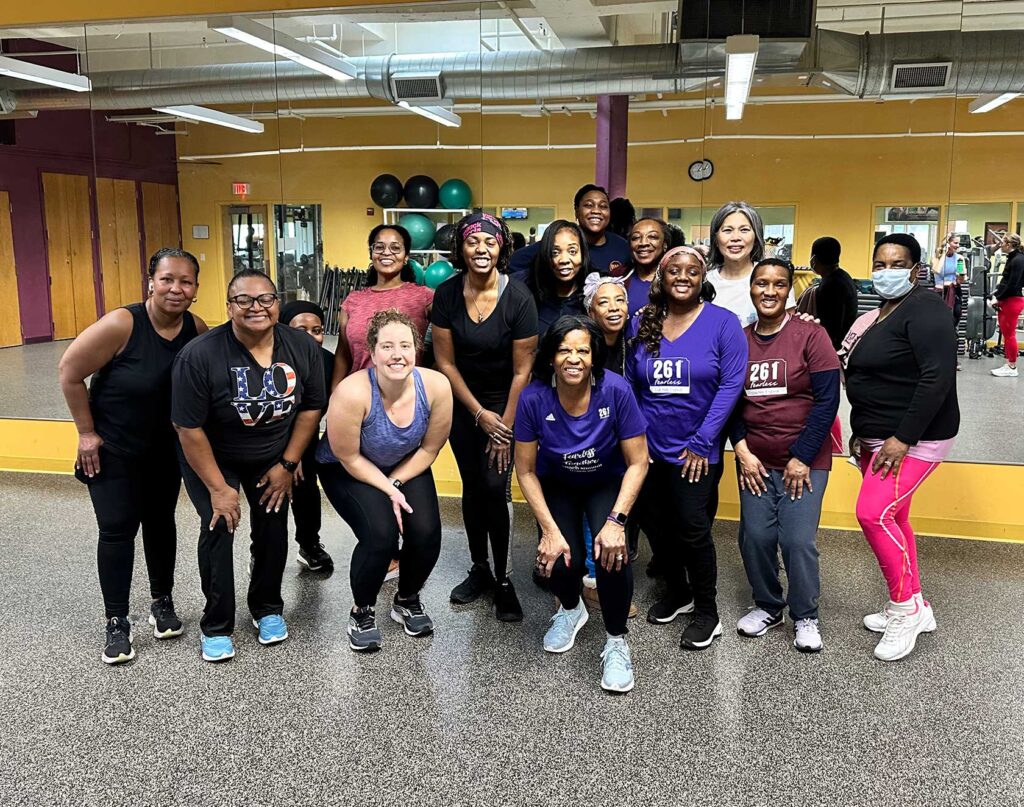
This year marks the 128th running of the Boston Marathon, the world’s oldest annual long-distance race. For many Black running clubs and individual runners, this event is a culmination of months of training, sacrifice and community.
Ohio native Erica Caldwell-Palmer, an ambassador for Black Girls RUN!, will don her first Boston Marathon bib this Monday. This race is not only a big deal for her, but it’s also the first time that the Black Girls RUN! organization will participate in what some runners call the “Super Bowl of running.”
“Black Girls RUN!, for the first time, has been given charity bibs by the Boston Athletic Association, which legitimizes us on so many different levels,” Caldwell-Palmer said. “It brings so much credibility to the run club. The Boston Marathon is the pinnacle.”
For Boston native Veronica Brown, the marathon was not a part of her plan for the year. The bib practically fell into her lap. Her husband sits on the board of the Boston Arts Academy. Previously, they have put on their own race as a fundraiser for the school, but this year, because of timing, they had to scrap that annual fundraiser. After speaking with the board, Brown’s husband, James Perry, jokingly offered her up as a runner if they got their hands on a Boston Marathon bib.
“I didn’t think it would actually become a reality. But you know, the world works in wonderful ways. CITGO donated a bib to the Boston Arts Academy Foundation and they didn’t have someone who was prepared to train, so I got looped in,” Brown said.
Brown had previously trained for a marathon, so she was able to pick up where she left off. However, finding out in December that she was running one of the world’s biggest races did expedite her training schedule.
“At the tail end of December, I found a 20-week training schedule. It was the shortest one that I could find,” she said.
Even with the shortened training schedule, Brown said, she felt invigorated by the Boston running community.
“I never belonged to a running club because it was just something that I did recreationally. You can pretty much go out on the weekend, anywhere along the course and just meet up with other runners,” she said.
Sandra Cotterell is the Dorchester coach for 261 Fearless Club New England, a local chapter of an international running organization for women. She is not participating in the big race but will be a part of some smaller races in the days leading up to Monday.
The legacy of her organization’s founder makes her feel like she’s a part of something bigger.
“The number 261 was Kathrine Switzer’s number. She was the first woman to run in the Boston Marathon, when women were not allowed to do that. I’m hoping that when I share the story with women, there’s a sense of pride and empowerment. For minorities in general, we’re always looking to find what is going to give us a sense of pride, a sense of accomplishment, and that’s going to empower us to take those risks,” Cotterell said.
Caldwell-Palmer said that sense of accomplishment is a big draw for her.
“I’m a bling-chaser. I think once I became an adult and was out of school, I didn’t know where to get that sense of achievement. You can’t get it from work. Your family’s not giving you gold stars for doing the dishes and keeping the house, right? Running is where I get that endorphin rush from the achievement of crossing the finish line,” the Black Girls RUN! ambassador said.
Without support from her family and friends, Caldwell-Palmer said it would be hard to achieve her running goals. She said running is a big time commitment and for her, it takes a village.
“The time commitment is real. It’s a lot of lonely months. There are a lot of days out there on the pavement collecting those miles. So I have to shout out to my husband and my family, who give me the space and grace to get that done,” she said.
Brown also pointed out the time commitment but stressed how important it is to take time for yourself, especially as a woman of color.
“We have a lot of responsibilities. And also, there’s just a lot of heaviness that goes with walking through a white world as a Black woman,” Brown said. “Running allows you to shake off all of that, the family and work responsibilities, the financial burdens and household items that need to get done and the built-in pressure that makes you feel like you have to take care of everyone else first. Running allows you the opportunity to focus on yourself.”
Brown said she felt like a poster child for any Black girl who thought running was not for them. She said if she can participate in an event as big as the Boston Marathon, anyone can run.
“I was not a runner at all,” she said. “Growing up, running just wasn’t a part of the culture for myself and the people I had around me. There’s so much to gain from long-distance running, with all of the training and discipline that is needed. I wish I learned earlier, how incremental steps can take you so much further than you could have thought in the beginning. These are skills that will take you through life.”
If you’re interested in running but don’t know where to start, Caldwell-Palmer suggests a running club, maybe even Black Girls RUN!, which has a Boston chapter. She said you can find them hitting the pavement all year round.
The first-time Boston marathoner said, “We’re out here doing the thing. Black girls are running, even through the winter. We are getting our miles in. So yes, we do run and we can’t wait to run Boston.”

